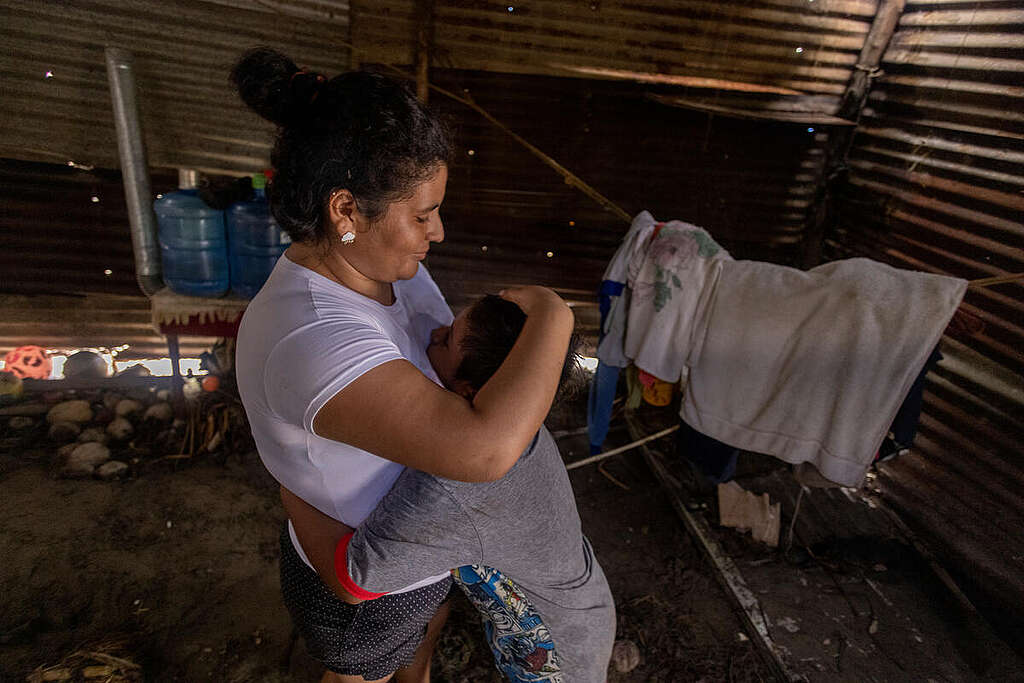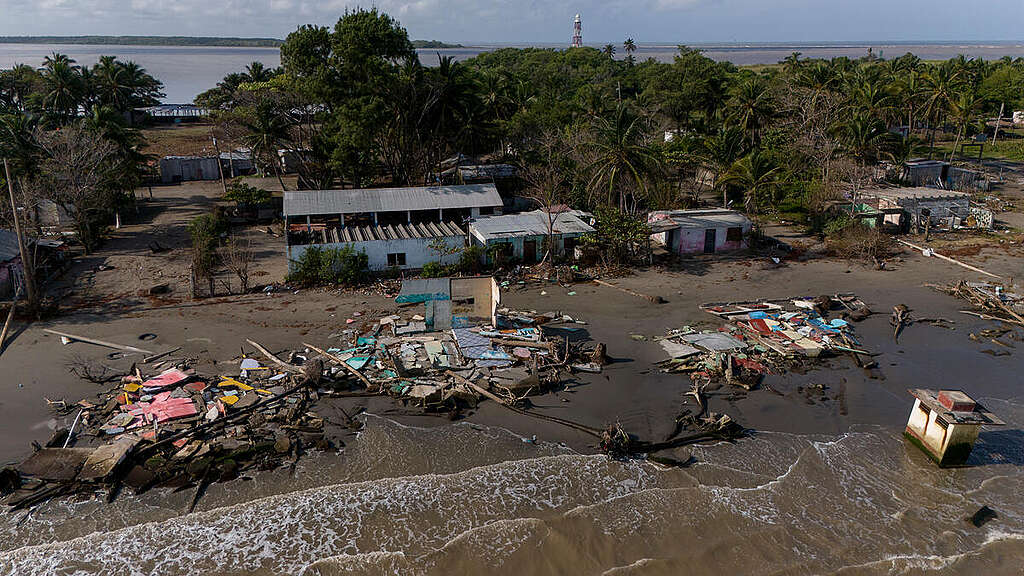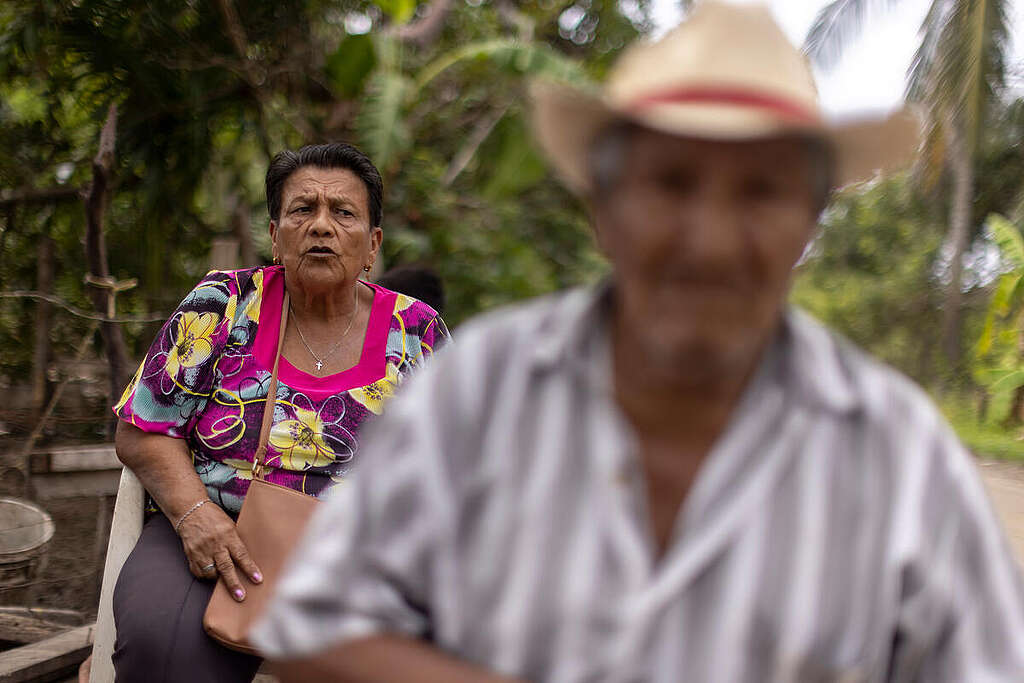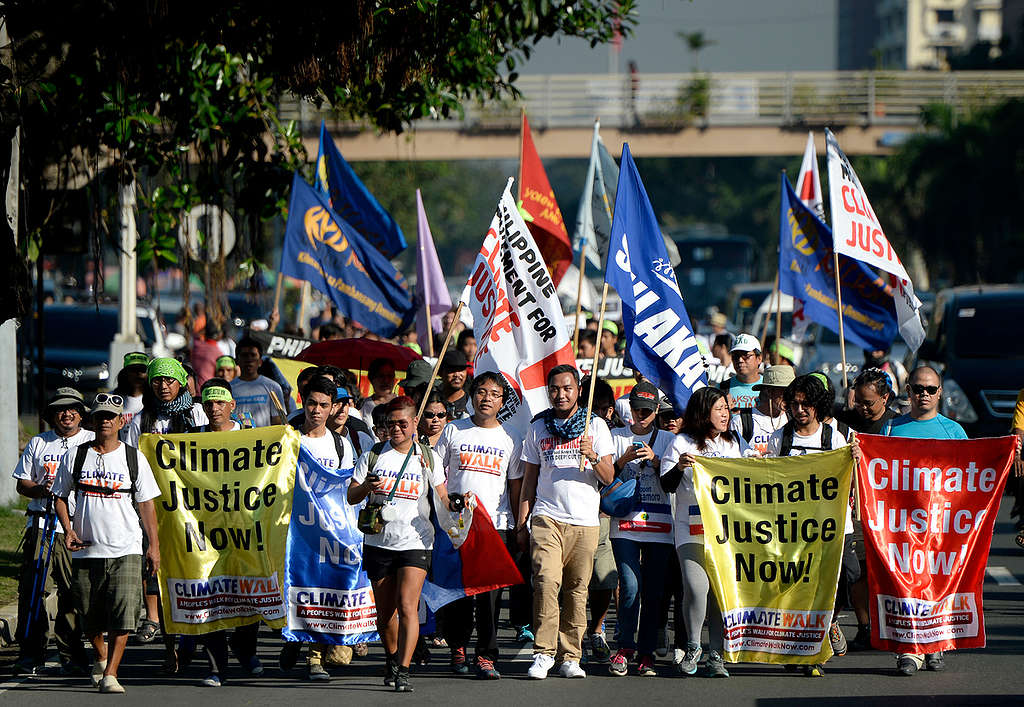For approximately five years, the El Bosque community in Tabasco, South East Mexico, has experienced severe consequences of the climate crisis. Their homes, schools, community centres, streets, and infrastructure have been engulfed and destroyed by rising sea levels and resulting floods and coastal erosion. More than 60 families have been displaced, and the entire community is in danger of disappearing.

Guadalupe Cobos Pacheco, a resident of El Bosque, shares that: "Climate change has caused a radical change in our lives, slowly but surely. Today we are not the same as we were yesterday, when we had Christmas, celebrations, posadas. It has changed us in every way. In our work, in everything. And today I can say that it is a very difficult change, very hard, very painful." ( Testimony from El Bosque Community written observations in the Advisory Opinion on the Climate Emergency and Human Rights)
Disproportionate impacts of climate change
At current levels of global warming, 1.1°C over pre-industrial levels, the climate crisis is having profound impacts on the fundamental rights of people around the world. In every region on the planet, and particularly in the Global South, extreme weather events and climate catastrophes are disproportionately affecting people and communities who are already in vulnerable situations. These include elderly women, people living in poverty, people of colour, youth, and children, as well as rural and coastal communities, Indigenous Peoples, and Afro-descendants.
The human rights of every single community member of El Bosque have been negatively affected by the climate emergency. Yesenia Albino, a resident of the community shares how this crisis has particularly affected children:
"I ask you to put yourselves in our shoes, imagine the image of water suddenly coming into your house, taking everything with it. Put yourselves in our shoes as parents, how do you think it would affect your children to experience this [being displaced by the consequences of climate change]? You are going to feel the same despair that we feel, the same pain and the same sadness that we have experienced seeing our children having to leave everything behind, to survive. You can see the sad faces of the children and it is [a] very ugly [feeling] to see your child down, saying "Mommy I want my house" or "I want my friends". It is very sad to see your son and daughter so sad because he or she wants a normal life, not an idea of coming and going. One minute we are in El Bosque and the next minute we leave because it is dangerous to be in the community. They get tired of coming and going, of not being able to play, and of not knowing where they are going to live."
The root cause of the climate emergency
The existence of structural disparities that make certain communities and individuals in the Global South more vulnerable to climate hazards is a direct consequence of the colonial legacy of exploitation and extractivism still pervasive today. Over a century of fossil fuel operations and destruction of ecosystems like rainforests have released significant amounts of greenhouse gases into the atmosphere causing climate change. A small number of business enterprises from the fossil fuel and the agribusiness sector, many of them headquartered in the Global North, are responsible for a significant share of these emissions and for manipulating climate science, public discourse and political systems to maintain a business model that significantly contributes to global warming and the adverse human rights impacts resulting from climate change.

Communities demand for justice
The differentiated impacts of the climate crisis, and the lack of accountability of the ones most responsible for it, have prompted communities to resist and seek justice. More communities are turning to the legal system to demand protection of their human rights and accountability for the violations that have already taken place, and they are being heard. A landmark inquiry before the Philippines Commission on Human Rights, brought by survivors of super typhoon Haiyan, found legal grounds for holding corporations responsible for climate destruction. Likewise, in the recent herstoric decision in the Senior Women for Climate Protection case, the European Court of Human Rights affirmed that climate protection is a human right. In the face of the climate emergency, States are also seeking advisory opinions from the highest courts in the world.

Advisory Opinion Request before the Inter-American Court of Human Rights
In January 2023, Chile and Argentina requested an Advisory Opinion from the Inter-American Court of Human Rights on the Climate Emergency and Human Rights. On 16 December 2023, Greenpeace International and allies filed written observations before the Court. Their submission focuses on the independent obligations to prevent, minimise and remediate the industry's conduct that drives climate change and violates human rights.TheEl Bosque community, with the support of Greenpeace Mexico, Nuestro Futuro Mexico and Conexiones Climáticas, also filed written observations before the Court.
From 22- 25 April, a Greenpeace delegation will attend the first session of hearings for this Advisory Opinion in Barbados and give an oral submission to the Court. Representatives from the El Bosque Community will attend the hearings in Manaus, Brazil on 27-29 May 2024, together with many other impacted communities. The Advisory Opinion on the Climate Emergency and Human Rights could play a crucial role in clarifying States' and business enterprises' obligations under international and human rights law.
It's time for all of us to assert our rights, demand climate justice, and a dignified way of life.
Safina Okumu is the Global Communications lead for the Climate Justice and Liability campaign at Greenpeace International.
Maria Alejandra Serra Barney is Legal Counsel Climate Specialist for the Climate Justice and Liability campaign at Greenpeace International
Valentina Panagiotopoulou is Global Project Lead for the Climate Justice and Liability Global Campaign at Greenpeace







